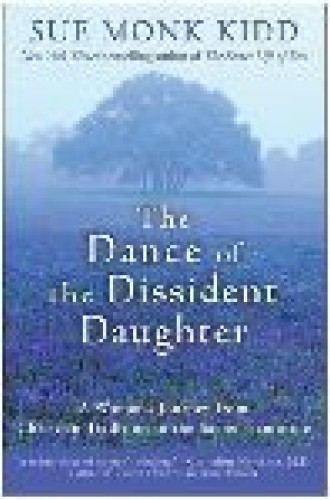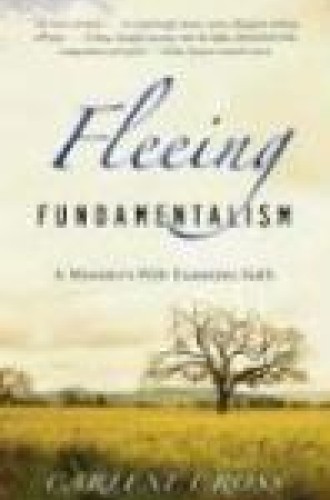Breaking away
Christian fundamentalism continues to rest on an explicit gender hierarchy, and conservative Christians continue to worry about the feminization of Christianity and how to maintain male power in church settings. It is no surprise, then, to see more books by women who are seeking a path out of fundamentalism, predominantly on feminist grounds. Sue Monk Kidd’s book about her decision to leave the Southern Baptist church that she had attended all of her adult life is a story of feminist awakening and growing consciousness about her need for a specifically feminine spirituality.
Kidd, author of the best seller The Secret Life of Bees, begins with an encounter at a drug store where her daughter worked. As her daughter was on her knees shelving toothpaste, two men entered and one joked, “That’s how I like to see a woman.” Kidd recounts how this moment, in conjunction with many others, led her to question Christianity and Christian society for its implicit masculine preferences. She recounts her own story in four stages—awakening, initiation, grounding and empowerment—which she thinks apply to all women facing similar experiences. She includes references to Jungian stereotypes, dream work, goddess consciousness and ancient female deities. Her ultimate goal is the integration of a feminine divine into her religious life and spiritual practices.
Kidd tells her story with an evangelical zeal. She believes her individual journey is emblematic of a more universal female coming-to-consciousness. I found myself recoiling at Kidd’s repeated use of the phrase “whenever a woman.” Do women’s stories have to follow the same pattern in order to be legitimately feminist? Faced with headings such as “The Dawn of Feminine Spiritual Consciousness,” I found myself skimming to see if Kidd was willing to complicate or question aspects of feminine spirituality. She is more interested in winning converts than asking questions.
The book reads like a tract on “Five Steps to Peace with My Feminist Self.” While I appreciate the effort to connect individual journeys with something more universal, I found myself suffocated by the prescriptive categories. Take a sentence such as this: “During awakening, volatility often lies just beneath the surface of a woman’s relationship with her partner.” I would have much preferred to this generalization an honest account of volatility in Kidd’s own marriage. I kept longing for her story to emerge out of the layers of Jungian archetypes and jargony feminist language, but it did so only in rare moments.
But I don’t doubt that Kidd’s story is important and that she has offered a critique of patriarchal Christianity for a wide audience that might not otherwise have access to it. Despite my various levels of resistance to the book, I found myself pondering some of her images and stories, such as her account of walking on the beach one night with her husband and seeing a sea turtle coming onto land to lay eggs. She watches the turtle in fascination and eventually moves over to sit next to it and place her hand on its shell. The moment offers completion for Kidd, a full acceptance of the union of the feminine and the divine.
Carlene Cross’s work is not as ambitious as Kidd’s, but it tells a captivating story. Cross gives her life to Jesus as a teenager in the midst of a howling storm on the Montana prairie. She attends a Bible college and meets a man who all the girls agree is a righteous Christian and the ideal husband. She marries him, quickly has three children and follows him across the country so he can attend seminary.
She is many years into her marriage and ensconced as a pastor’s wife in a large Baptist church when she discovers that her husband has a serious sexual addiction. Their lives begin to unravel. Cross tells of her growing critique of the fundamentalist presuppositions that she has internalized about both marriage and faith, as well as her tentative journey to build her life on different ground.
Cross’s prose is rooted in the sensory detail that too many memoirs lack. She does not merely open with an account of her conversion, but describes the scent and feel of the heavy Montana air, the color of the sky, and the quality of the light in her kitchen. Often Cross finds a way to talk about the complexities of bodily sensation and spiritual knowing. She writes about waking up at 5 a.m. during her Bible college years to go into a broom closet to pray. “If Jesus and the early saints could face this unbelievable persecution, I could certainly pray for an hour each morning in the janitor’s closet, I told myself as I heard people turning on the hot showers in the lavatory next door. So I stayed on my knees and thought about warm, soothing water running over my skin.”
Like Kidd’s, Cross’s journey leads to a shocking encounter with the history of Christianity. She begins to read widely in history and theology, hiding books in her closet and bringing them out to read while she homeschools her daughters. Her disillusionment with faith intensifies. As with Kidd, the crucial sticking point is the church’s teaching on female submission and subordination to men.
Parts of Cross’s tale seem unbelievable. Nearly every fundamentalist marriage detailed in the book involves pornography, a controlling husband, adulterous affairs or other forms of hypocrisy. Only much later in Cross’s journey does she wonder about her failure to focus on the many people around her who were essentially good. Her own anger and bitterness had hidden from her the “fine-hearted, decent people who had come [to the church] to find God,” she writes. This realization allows her to begin to pursue another spiritual journey, one that is less driven by dogma.
Cross suggests that fundamentalism, with its emphasis on submissive women and dominant men, feeds an interest in pornography and other forms of objectification of women. “Could it be that the church’s literal interpretation of Genesis encouraged men to treat women with less respect and think of them only as a means of sexual fulfillment?” Cross does not explore this point in detail, but her question hints at the significance of a feminist critique of fundamentalism—not merely for Christianity itself, but for American culture with its constant sexual display of women. Kidd’s and Cross’s books may leave us feeling frustrated that such critiques are still necessary. But with her honest and careful storytelling, Cross also offers a good deal of hope.




